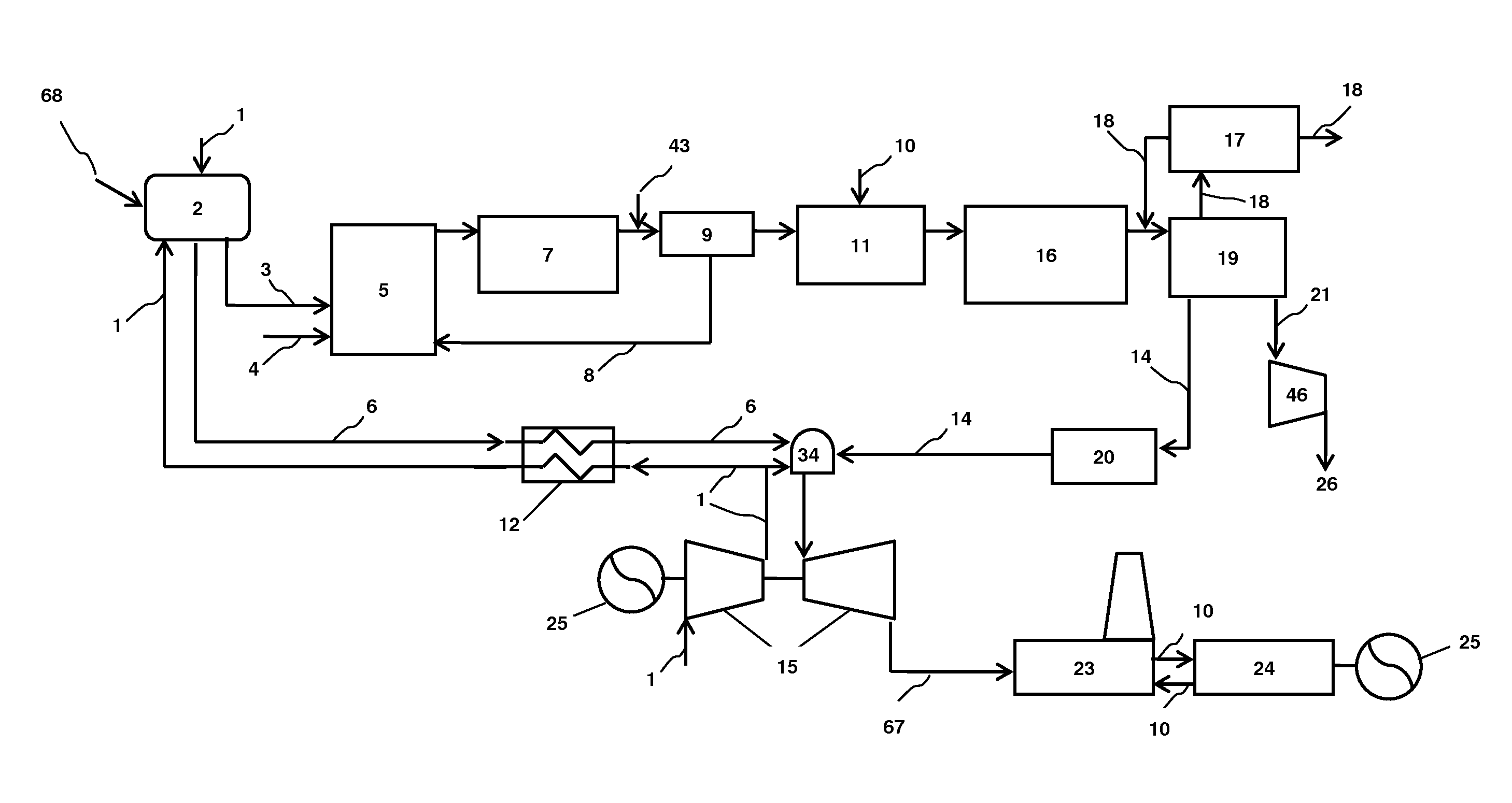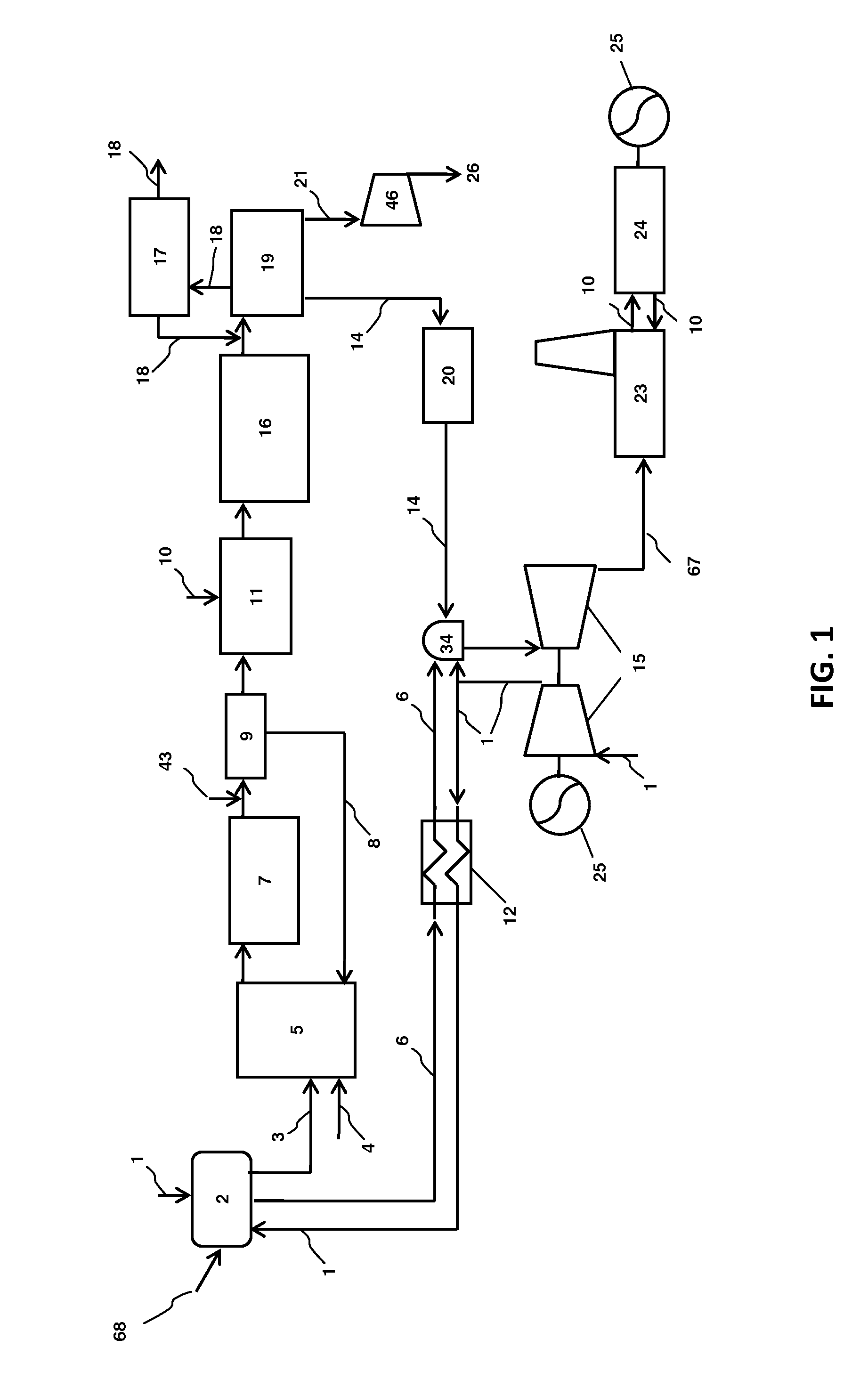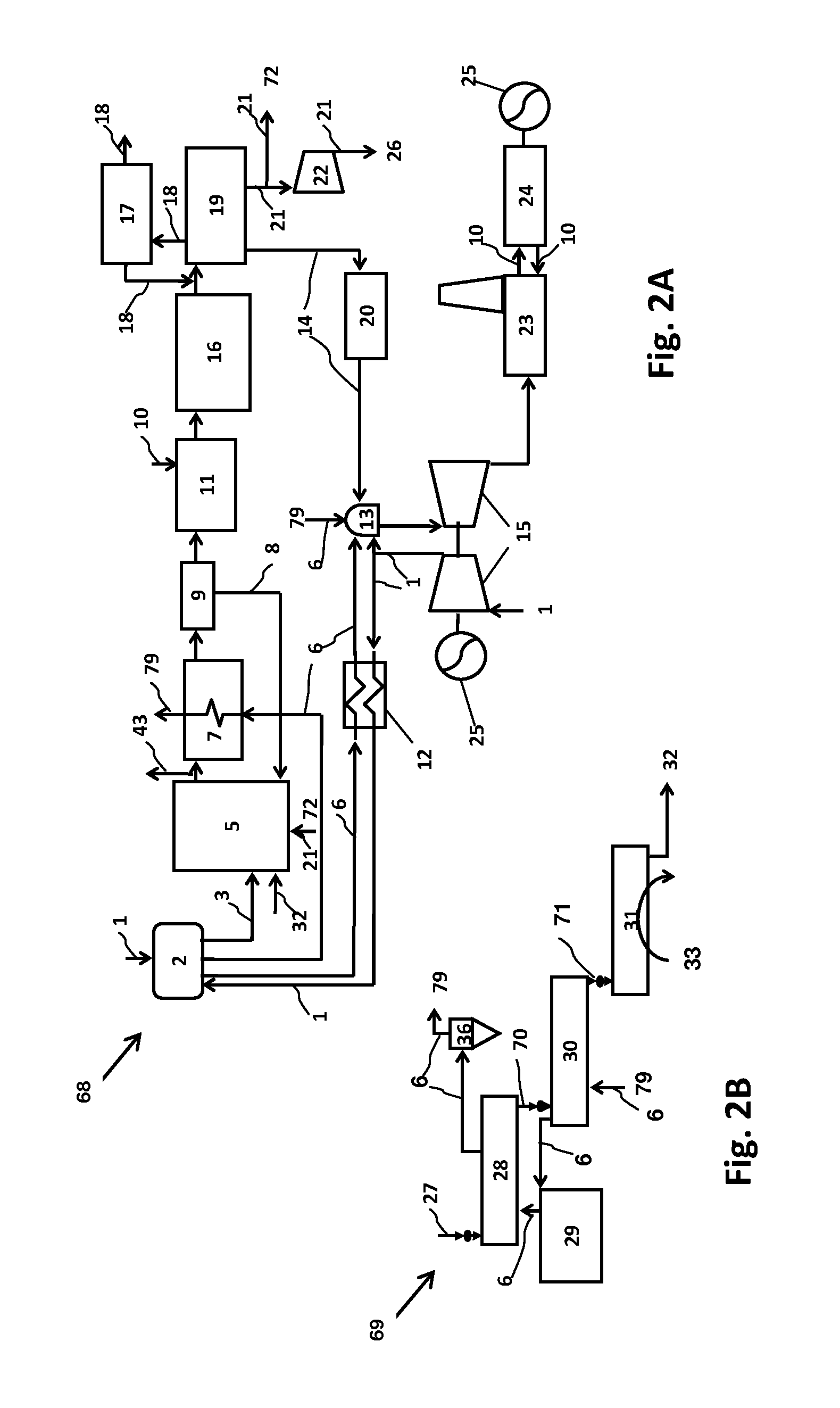Efficient Low Rank Coal Gasification, Combustion, and Processing Systems and Methods
- Summary
- Abstract
- Description
- Claims
- Application Information
AI Technical Summary
Benefits of technology
Problems solved by technology
Method used
Image
Examples
example 01
Demonstration of Volatile Metals Removal—Drying (VMR-D) Process
[0082]Testing was conducted in the 100 pph pilot plant at the Western Research Institute to assess the performance of the VMR-D process. The VMR-D coal drying may take place in the temperature window of about 225- about 300° F. FIG. 24 depicts the average of fluidized bed temperature measured at three locations versus time at three steady-state periods. The average drying temperature varied from 251 to 295° F. The resulting moisture content was insignificant (near zero percent by weight). Stable operation of the VMR-D was achieved and controllable.
[0083]FIG. 25 shows the average temperature of the VMR-D volatile metals removal fluidized bed reactor. In this typical case, the bed temperature was varied from 425 to 593° F. Each temperature indicates the steady state condition at which the coal was treated to achieve maximum heavy metals release without compromising on any significant changes in the rest of the volatiles th...
example 02
Integration of VMR-D Process to an Existing Utility Boiler
[0085]FIGS. 14A and 14B show the integration of the VMR-D process with a pulverized coal-fired boiler. The wet fuel may be fed to the dryer operated at 225° F. by hot flue gas extracted before the air heater. The dried fuel may then be heated to 550-575° F. in a volatile metal removal heater to remove Hg by hot CO2 gas within a closed loop. Before being fed to the pulverizer, the hot fuel may be cooled down to 250-300° F. in a cooler by condensate. The VMR reactor effluent gas containing volatile mercury (Hg) and other volatile metals may be ducted from the reactor to the dryer and cooled down indirectly. This gas may be forwarded to a sorbent bed for Hg and other volatile metals capture. To avoid explosion, all of working gas streams for VMR-D process may have low O2 content. Due to a large amount of gas flow, the gas exiting the dryer may be discharged to the FGD directly. Fans may be supplied for each gas stream to overcom...
example 03
Utility-Scale Economic Evaluation—Retrofit to Subcritical Plant
[0087]An assessment was conducted of the economic impact of retrofitting the proposed system on to an existing lignite-fired pulverized coal subcritical plant. This assessment is based on an existing pulverized coal (PC) plant with a nominal output of 600 MWe burning either as-received lignite or subbituminous coal or lignite or subbituminous coal treated by the pre-process volatile metals removal and pre-process drying process. The EPRI PC Cost program used to estimate the cost for two cases for the following two coals.
[0088]Case Lignite-A—Base plant with ACI: Based on the as-received lignite analysis. This case models the use of ACI upstream of the primary particulate collector for 90% mercury removal. The fly ash and activated carbon are captured together in the particulate collector rendering the fly ash unsalable. The utility not only loses revenue from the sale of the ash but must also pay to dispose of it.
[0089]Ca...
PUM
| Property | Measurement | Unit |
|---|---|---|
| Temperature | aaaaa | aaaaa |
| Temperature | aaaaa | aaaaa |
| Fraction | aaaaa | aaaaa |
Abstract
Description
Claims
Application Information
 Login to View More
Login to View More - R&D
- Intellectual Property
- Life Sciences
- Materials
- Tech Scout
- Unparalleled Data Quality
- Higher Quality Content
- 60% Fewer Hallucinations
Browse by: Latest US Patents, China's latest patents, Technical Efficacy Thesaurus, Application Domain, Technology Topic, Popular Technical Reports.
© 2025 PatSnap. All rights reserved.Legal|Privacy policy|Modern Slavery Act Transparency Statement|Sitemap|About US| Contact US: help@patsnap.com



